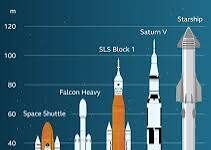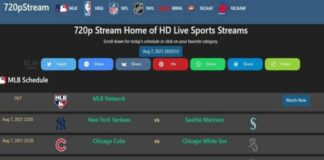In the dynamic world of sports, where every move counts and the pursuit of excellence is relentless, a silent revolution is underway—propelled by the omnipresence of data science. From predicting match outcomes to fine-tuning player performance and enhancing fan engagement, data science is rewriting the playbook for athletes, coaches, and enthusiasts alike. This article explores the transformative impact of data science on the realm of sports analytics, unveiling the myriad ways in which this technological prowess is reshaping the sporting landscape.
1. The Data-Driven Playbook
In the competitive arena of modern sports, success is no longer solely determined by raw talent and strategic prowess. Enter data science, the game-changer that introduces a data-driven playbook. Teams, armed with analytics, gain a strategic edge by dissecting opponent games, evaluating player metrics, and formulating winning tactics based on historical data. The result? Sports that are not just physical battles but also intellectual duels, where every move is a calculated decision informed by data.
2. Player Performance: Beyond the Surface
Player performance analysis stands out as one of the most revolutionary applications of data science in sports. Wearable technology has elevated this analysis to new heights, allowing athletes to track heart rate, distance covered, sprinting patterns, and even sleep habits. Coaches, armed with a trove of data, gain insights into an athlete’s physical state, enabling personalized training programs and injury prevention strategies. The era of data-driven coaching is here, optimizing player potential and reshaping the dynamics of team sports.
3. Injury Prevention: A Data-Backed Defense
The intersection of sports and data science extends to injury prevention—a critical aspect of an athlete’s career. Teams leverage data analytics to identify risk factors and trends, analyzing player biomechanics and historical injury data. The result is focused treatments aimed at keeping players in peak condition. Case in point: The collaboration between the Atlanta Hawks and a data science business, leading to a significant reduction in non-contact injuries through the analysis of player movement patterns.
4. Fan Engagement: Tailored Experiences
In the dynamic world of sports, fan engagement has evolved from a passive spectatorship to an interactive and personalized experience, thanks to the infusion of data science. Tailored experiences for fans have become a pivotal aspect of sports organizations’ strategies, leveraging insights to create a more immersive and enjoyable journey for every supporter.
1. Understanding Fan Preferences:
Data science allows sports teams and leagues to delve deep into understanding the preferences of their fanbase. Through data analytics, organizations can analyze fan behaviors, preferences, and consumption patterns. This goes beyond basic demographics, delving into individual preferences regarding players, game dynamics, and even preferred channels of engagement.
2. Personalized Content Delivery:
Armed with insights into fan preferences, sports entities can tailor content delivery to match individual tastes. Whether it’s delivering customized newsletters, exclusive behind-the-scenes footage, or personalized promotions, the aim is to create a unique and resonant connection with each fan. This personalized content approach ensures that fans receive information and updates that align with their specific interests, fostering a deeper sense of connection.
3. Enhanced Spectator Experiences:
Data-driven fan engagement extends to the live event experience. Sports venues are incorporating technology to enhance the in-stadium experience, from personalized seat recommendations to interactive mobile apps providing real-time stats and highlights. These enhancements create a more enjoyable and immersive experience for fans attending live events, ensuring that the stadium becomes a hub of excitement and engagement.
4. Targeted Marketing Campaigns:
With data science, sports organizations can execute targeted marketing campaigns. This involves tailoring promotions, advertisements, and sponsorship activations to specific segments of their fanbase. By understanding the preferences and behaviors of different fan segments, organizations can create campaigns that are not only more effective but also resonate with the intended audience, leading to increased engagement and brand loyalty.
5. Leveraging Social Media Insights:
Social media has become a cornerstone of fan engagement, and data science plays a crucial role in maximizing its impact. Through analytics, teams can understand which content performs best on social platforms, the optimal posting times, and even the sentiments of the fan responses. This insight allows for the creation of more engaging and shareable content, amplifying the team’s reach and influence on social media.
6. Gamification for Fan Participation:
Gamification strategies are employed to encourage fan participation. Predictive games, fantasy leagues, and interactive challenges based on real-time match data provide fans with avenues to actively engage with the sport. These gamified experiences not only entertain but also deepen the emotional investment of fans in the outcomes of the games.
5. Scouting and Strategic Transfers: Unearthing Talent
The global pool of athletes is vast, and data science aids teams in scouting talent with precision. By analyzing performance metrics on a global scale, teams make well-informed decisions during transfers, assembling competitive and successful squads. The marriage of data and talent scouting is a testament to how data science permeates every aspect of sports management, ensuring teams are equipped with the best possible lineup.
6. Game-Changing Collaborations: Case Studies
Delving into specific case studies, the article highlights how data analytics is transforming decision-making, player development, and strategic planning in football and basketball. Liverpool FC’s collaboration with STATSports showcases the power of GPS tracking devices in optimizing player performance. In basketball, exemplified by the Golden State Warriors, data analytics becomes a game-changer for optimizing strategies and reshaping the landscape of basketball strategy and tactics.
7. Future Frontiers: Beyond the Horizon
As data science continues to weave itself into the fabric of sports, the future holds even more promise. The fusion of athleticism and analytics is a potent force, reshaping how we perceive and engage with sports. The article concludes by inviting readers to contemplate the pervasive role of data science the next time they watch a sports match, recognizing the invisible hand that contributes to every thrilling moment.
In essence, the marriage of data science and sports is not a mere alliance; it’s a revolution that is scoring big, changing the rules of the game, and promising an exhilarating future where data is the MVP both on and off the field.










